Greece, home of some of the greatest civilizations of the ancient world, but also a country of unique natural beauty, has something to attract every traveler. Archaeological sites and museums display artifacts and statues that bring to life some of the most glorious moments of the world's history and art. Traditional villages scattered throughout the land remain untouched throughout the years, giving you a feeling that time has stopped. Churches from the Byzantine years, or later, mark the deep religious beliefs of the locals. Great mountains, rivers and lakes, magnificent islands, as well as some of the most famous beaches in the world complete the puzzle of unique landscapes in this beautiful country.
Athens

Athens, the capital of Greece today, was one of the most important city states of the ancient world. Civilization flourished here, especially during the "Golden Age of Pericles", and here today one can find the remains of some of the most important monuments of the world. Apart from the one and only Parthenon, one can see several other archaeological sites and museums which display artifacts from different periods of time. But as one can expect, there are so many more things to see in such a big city. Here you will find the most important attractions of Athens.
Islands
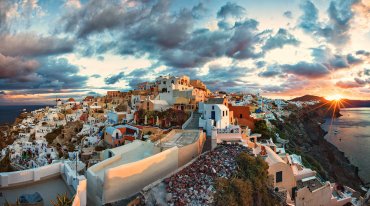
Greece has over 2,500 islands, some of which are the most famous of the world. Some of the oldest European civilizations have developed in the islands of Greece (Cycladic, Minoic, etc). The islands feature unique archaeological sites, a special architectonic heritage and charming local traditions of a multifaceted long lasting culture. Apart from the romantic Santorini and the cosmopolitan Mykonos, when you visit Greece you should also see other islands of great beauty and history, from prehistoric times until after fall of the Byzantine empire. There one can relax at some of the most beautiful beaches of the world, but also explore the many secrets of these islands.
Olympia
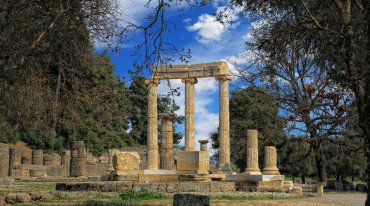
The birthplace of the Olympic Games was one of the most important places in ancient Greece, along with the nearby areas of Ilida and Andritsena, and therefore they flourished in ancient times. The excavations have revealed archaeological sites of great importance, full of unique artifacts and statues that are now in display in the numerous museums of the area. But there are more for the visitor that travels to Olympia to see and experience. Among other things you will see traditional monasteries, a Venetian castle standing in great condition, fishing villages, as well as well hidden areas of unique natural beauty.
Peloponnese
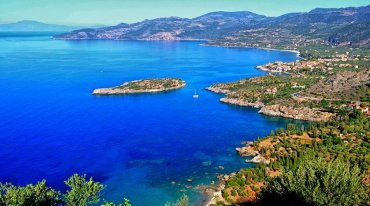
Once connected to the Greek mainland and seperated by the construction of the famous Corinth Canal, Peloponnese is a place where the visitor can find everything. Archaeological sites and museums, religious sites and Byzantine churches, medieval castles, charming traditional villages, some of the best beaches in the world, mountain canyons and rapid rivers, even underwater prehistoric villages, all of these are just some of the things you can see when you visit the Peloponnese.
Delphi
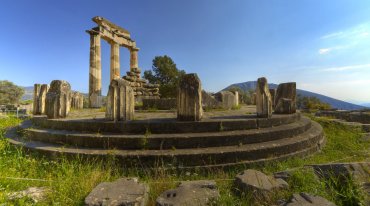
The navel of the earth as they used to call it, Delphi, is an archaeological site of utmost importance. Being the greatest oracle of ancient Greece, it was a place where people from all over Greece back then visited to learn what their future held. Today one can see the ruins of the Oracle, as well as the surrounding temples, and see great statues and artifacts in the museum. Nearby the traveler can also find one of the most picturesque villages of Greece, especially during winter, and a monastery of great history that is also part of the list of UNESCO's list of monuments.
Northern Greece
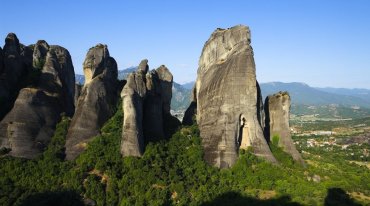
While northern Greece is not the most popular destination for the average traveler, there are many places of interest to explore. Diversity should be northern Greece's second name – the region stretches across more cultures and terrains than any other in the country. Mighty civilisations, including Macedonians, Thracians, Romans, Byzantines, Slavs and Turks, have left traces here. From the tomb of the royal family of the Macedonian empire to the place where St. Paul first preached and from the rocky formation of Meteora to the second largest city of Greece, one can discover the many secrets of the land.

